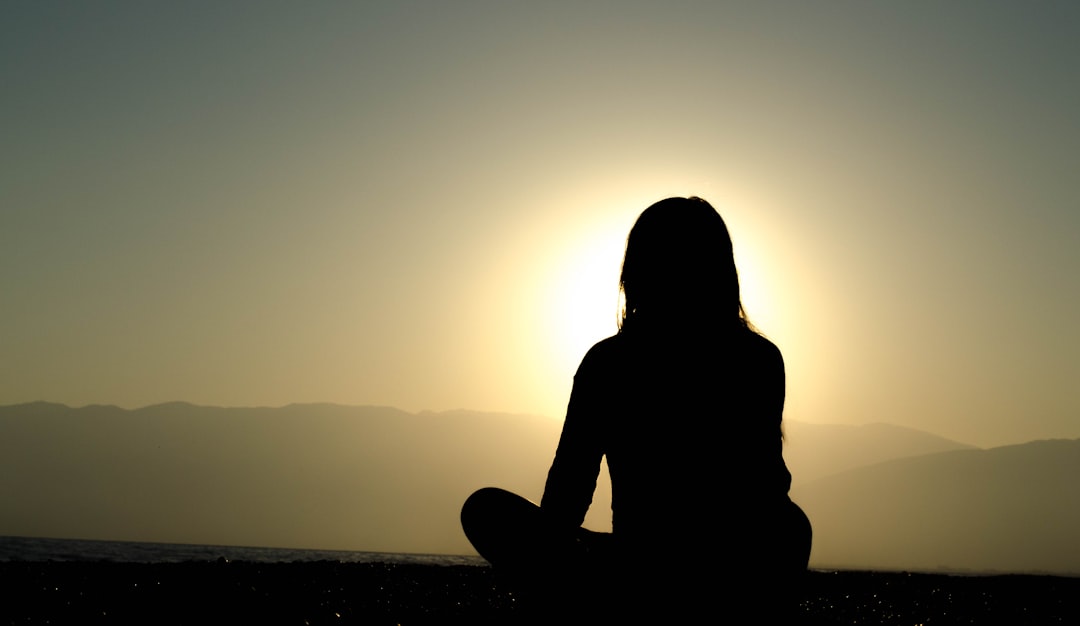Comprehensive Guide of Meditation
Overview
Meditation is a practice that involves focusing the mind and eliminating distractions to achieve a state of mental clarity, emotional stability, and physical relaxation. It encompasses a variety of techniques, including mindfulness, concentration, loving-kindness, and transcendental meditation, each offering unique benefits. Meditation can be practiced in various settings, from quiet rooms to natural environments, and can be done alone or in groups. This hobby promotes self-awareness, reduces stress, and enhances overall well-being, making it a valuable tool for personal growth and mental health. Many individuals incorporate meditation into their daily routines, finding it to be a transformative practice that fosters a deeper connection with themselves and the world around them.
History
The origins of meditation can be traced back thousands of years, with roots in ancient spiritual traditions, particularly in Hinduism and Buddhism. The earliest written records of meditation practices appear in the Vedas, sacred texts of Hindu philosophy, around 1500 BCE. Buddhism, founded by Siddhartha Gautama (the Buddha) in the 5th century BCE, further popularized meditation as a means to attain enlightenment and inner peace. Over the centuries, meditation has evolved and adapted, influencing various cultures and spiritual practices worldwide. In the 20th century, meditation gained recognition in the West, particularly during the 1960s and 1970s, as interest in Eastern philosophies and holistic health grew. Today, meditation is widely practiced across diverse communities, often integrated into wellness programs and therapeutic practices.
Popularity and Demographics
Meditation has surged in popularity in recent years, becoming a mainstream practice embraced by individuals of all ages and backgrounds. According to a 2017 survey by the National Center for Complementary and Integrative Health, approximately 14% of adults in the United States reported practicing meditation, a significant increase from previous years. This hobby is particularly popular among millennials and Gen Z, who often seek mindfulness techniques to cope with stress and anxiety. Additionally, meditation has gained traction in corporate environments, with many companies offering mindfulness programs to enhance employee well-being and productivity. The rise of mobile apps, online courses, and social media platforms has made meditation more accessible, allowing individuals to explore various techniques and connect with a global community of practitioners.
Sponsored Hobbyists and Vendors
Become a Sponsor!
Affiliate Disclaimer: Throughout some sections below, Hobby Spotlight may suggest some tools, equipment or material using affiliate links. By purchasing any of those items, Hobby Spotlight may earn a small commission. This helps fund our website, content and services without directly charging our users.
Getting Started
Essential Meditation Tools:
Beginner
- Meditation Cushion: A comfortable cushion to support your posture during meditation.
- Meditation Timer: A timer specifically designed for meditation sessions.
- Guided Meditation App Subscription: Access to guided meditation sessions through a mobile app.
- Yoga Mat: A non-slip mat for comfortable seating during meditation.
- Incense Sticks: Aromatic incense to create a calming atmosphere.
Intermediate
- Meditation Bench: A portable bench to enhance comfort during longer meditation sessions.
- Singing Bowl: A bowl that produces sound to aid in meditation and mindfulness.
- Meditation Journal: A journal to reflect on your meditation experiences and progress.
- Essential Oil Diffuser: A diffuser to disperse calming essential oils during meditation.
- Meditation App with Advanced Features: An app offering advanced meditation techniques and tracking features.
Basic Requirements and Initial Setup:
- Quiet Space: A calm and quiet environment is essential for meditation, allowing you to focus and minimize distractions.
- Comfortable Seating: Whether it’s a cushion, chair, or mat, having a comfortable place to sit helps maintain focus and relaxation during meditation sessions.
- Time Commitment: Setting aside a specific time each day, even if it’s just a few minutes, helps establish a consistent meditation practice.
Fundamental Skills to Learn:
- Breath Awareness: Learning to focus on your breath is a foundational skill that helps anchor your mind during meditation.
- Mindfulness: Developing the ability to observe thoughts and feelings without judgment is crucial for effective meditation.
- Body Scan: This technique involves mentally scanning your body for tension and consciously relaxing those areas.
- Visualization: Using mental imagery to enhance relaxation and focus can deepen your meditation experience.
- Setting Intentions: Establishing a purpose or goal for your meditation practice can provide direction and motivation.
Sub-Hobby/Common Activities:
- Guided Meditation: Following along with a recorded session led by an instructor to help focus and deepen practice.
- Mindfulness Meditation: Practicing being present in the moment and observing thoughts and sensations without attachment.
- Transcendental Meditation: A specific technique involving the repetition of a mantra to settle the mind into a state of profound rest.
- Zen Meditation (Zazen): A seated meditation practice that emphasizes posture and breath awareness.
- Movement-Based Meditation: Incorporating gentle movements, such as yoga or tai chi, to enhance mindfulness and relaxation.
Terminology:
- Mindfulness: The practice of being fully present and engaged in the moment, aware of thoughts and feelings without judgment.
- Mantra: A word or phrase repeated during meditation to help focus the mind.
- Chakra: Energy centers in the body that are believed to influence physical and emotional well-being.
- Breathwork: Techniques that involve conscious control of breathing to enhance relaxation and awareness.
- Visualization: The practice of creating mental images to promote relaxation and focus during meditation.
- Intention: A guiding principle or purpose set before meditation to enhance focus and motivation.
- Grounding: Techniques used to connect with the present moment and the physical body, often involving sensory awareness.
- Equanimity: A state of mental calmness and balance, especially in difficult situations, cultivated through meditation.
- Flow State: A mental state of complete absorption and focus, often achieved during deep meditation.
- Centering: The practice of finding a calm and balanced state of mind before beginning meditation.
Advanced Topics and Specializations
Advanced Meditation Tools:
- Meditation Cushion: Ergonomically designed cushion that provides comfort and support for longer meditation sessions.
- Singing Bowl Set: A set of high-quality Tibetan singing bowls used for sound healing and enhancing meditation practices.
- Meditation Timer: A digital timer with customizable intervals and soothing sounds to enhance your meditation experience.
- Essential Oil Diffuser: A high-capacity diffuser that disperses essential oils to create a calming atmosphere during meditation.
- Guided Meditation App Subscription: Access to a premium app offering a variety of guided meditations, courses, and mindfulness practices.
Advanced Projects and Achievements:
- Mindfulness Retreats: Organizing and participating in immersive retreats that focus on deepening meditation practices and enhancing mindfulness in daily life.
- Guided Meditation Creation: Developing personalized guided meditations for specific needs, such as stress relief, sleep improvement, or emotional healing.
- Community Meditation Events: Leading group meditation sessions in local communities to promote mental well-being and foster connections among participants.
Advanced Techniques and Methods:
- Transcendental Meditation: Practicing a specific form of silent mantra meditation that aims to promote deep relaxation and self-awareness.
- Mindfulness-Based Stress Reduction (MBSR): Utilizing structured programs that combine mindfulness meditation and yoga to reduce stress and improve mental health.
- Visualization Techniques: Employing guided imagery to enhance relaxation and focus, often used in conjunction with other meditation practices.
Specializations and Niche Areas:
- Zen Meditation (Zazen): Focusing on seated meditation practices that emphasize breath awareness and the observation of thoughts.
- Vipassana Meditation: Engaging in insight meditation that promotes self-observation and understanding of the nature of reality.
- Sound Healing Meditation: Incorporating sound frequencies, such as singing bowls or gongs, to enhance the meditative experience.
- Movement-Based Meditation: Exploring practices like Tai Chi or Qigong that combine meditation with gentle physical movement.
- Online Meditation Communities: Participating in virtual groups that share resources, experiences, and support for meditation practices.
Future Trends and Innovations:
- Increased integration of technology in meditation practices, such as apps that offer guided sessions and progress tracking.
- Growing interest in corporate mindfulness programs aimed at improving employee well-being and productivity.
- Expansion of research on the mental health benefits of meditation, leading to wider acceptance in therapeutic settings.
- Development of virtual reality meditation experiences that create immersive environments for relaxation and focus.
- Rise of personalized meditation plans tailored to individual needs and preferences through AI-driven platforms.
Technology Integrations:
- Meditation Apps: Mobile applications that provide guided meditations, timers, and progress tracking to enhance practice.
- Wearable Devices: Gadgets that monitor physiological responses during meditation, helping users optimize their practice.
- Online Courses and Webinars: Virtual learning platforms that offer structured meditation training and workshops.
- Social Media Communities: Online groups and forums that foster discussion, support, and sharing of meditation experiences.
- AI-Powered Personalization: Utilizing algorithms to create customized meditation experiences based on user feedback and preferences.
Further Learning and Resources
Books:
- The Miracle of Mindfulness by Thich Nhat Hanh: A practical guide to mindfulness meditation, offering simple exercises and insights to help beginners cultivate awareness and peace.
- Wherever You Go, There You Are by Jon Kabat-Zinn: An introduction to mindfulness meditation that emphasizes the importance of being present and offers guidance for integrating mindfulness into daily life.
- Meditation for Beginners by Jack Kornfield: A straightforward guide that introduces the basics of meditation, including techniques and tips for establishing a regular practice.
- The Mind Illuminated by Culadasa (John Yates): A comprehensive guide that combines ancient Buddhist teachings with modern neuroscience, providing a detailed roadmap for deepening meditation practice.
- Radical Acceptance by Tara Brach: Explores the concept of accepting ourselves and our lives fully, using meditation and mindfulness to overcome feelings of unworthiness and self-judgment.
- The Heart of the Buddha’s Teaching by Thich Nhat Hanh: A profound exploration of Buddhist teachings and meditation practices that guide practitioners toward deeper understanding and compassion.
Websites:
- Headspace, https://www.headspace.com – A popular app and website offering guided meditations, mindfulness techniques, and resources for beginners and experienced practitioners.
- Calm, https://www.calm.com – Provides a variety of meditation sessions, sleep stories, and relaxation techniques to help users reduce stress and improve focus.
- Insight Timer, https://www.insighttimer.com – A free meditation app with thousands of guided meditations, music tracks, and community features for connecting with other meditators.
- Mindful, https://www.mindful.org – Offers articles, resources, and tips on mindfulness and meditation practices, along with a community for sharing experiences.
- 10% Happier, https://www.tenpercent.com – A meditation app and website that focuses on practical meditation techniques for skeptics, featuring courses and expert guidance.
Courses:
- Mindfulness Meditation for Beginners, https://www.udemy.com/course/mindfulness-meditation-for-beginners/ – A comprehensive course designed for beginners to learn the basics of mindfulness meditation.
- The Science of Well-Being, https://www.coursera.org/learn/the-science-of-well-being – A Yale University course that explores the science behind happiness and offers practical strategies for improving well-being, including meditation techniques.
- Meditation and Mindfulness: A Complete Guide, https://www.udemy.com/course/meditation-and-mindfulness-a-complete-guide/ – This course covers various meditation styles and mindfulness practices suitable for all levels.
- Mindfulness-Based Stress Reduction (MBSR), https://www.umassmed.edu/cfm/mindfulness-based-programs/mbsr-courses/ – An 8-week program developed by Dr. Jon Kabat-Zinn that teaches mindfulness meditation to reduce stress and improve mental health.
- Advanced Meditation Techniques, https://www.skillshare.com/classes/Advanced-Meditation-Techniques/123456 – A course for experienced meditators looking to deepen their practice with advanced techniques and insights.

Content Creators and Community
Content Creators:
- Headspace (YouTube): Offers guided meditations and mindfulness techniques, focusing on mental well-being and stress reduction.
- The Mindful Movement (YouTube): Provides a variety of guided meditations, yoga practices, and mindfulness exercises to promote relaxation and self-awareness.
- Matt de Gennaro (Instagram): Shares daily meditation tips, mindfulness practices, and inspirational quotes to encourage a mindful lifestyle.
- The Meditation Podcast (Podcast): Offers guided meditations and discussions on various meditation techniques to help listeners cultivate mindfulness.
- Meditation Oasis (Website): Features guided meditations and resources for both beginners and experienced practitioners, focusing on relaxation and stress relief.
- Tara Brach (YouTube): A renowned meditation teacher who shares insights on mindfulness, compassion, and emotional healing through her guided meditations and talks.
- Headspace App (App): A popular meditation app that provides guided sessions, sleep aids, and mindfulness resources tailored to individual needs.
Online Forums and Social Media Groups:
- Reddit – /r/Meditation: A community for sharing experiences, techniques, and resources related to meditation and mindfulness.
- Facebook Meditation Groups: Various groups where members share tips, experiences, and support for meditation practices.
- Insight Timer Community: An interactive platform where users can connect, share insights, and participate in group meditations.
- Instagram Hashtags (#meditation, #mindfulness): Follow trending posts and connect with others sharing their meditation journeys.
- Pinterest Boards: Explore a variety of meditation techniques, quotes, and resources curated by meditation enthusiasts.
Local Clubs and Organizations:
- Meditation Centers: Many cities have local meditation centers offering classes, workshops, and group meditations.
- Yoga Studios: Often host meditation classes and workshops as part of their wellness offerings.
- Community Wellness Programs: Local organizations may provide meditation sessions and mindfulness workshops for residents.
- Mindfulness-Based Stress Reduction (MBSR) Programs: These programs are often offered through hospitals or community centers, focusing on mindfulness practices.
- Meetup Groups: Platforms like Meetup.com host local meditation and mindfulness groups for practice and discussion.
Events, Meetups, and Conventions:
- Mindfulness and Meditation Retreats: Weekend or week-long retreats focused on deepening meditation practices and mindfulness.
- Local Meditation Workshops: Community events that provide instruction and practice in various meditation techniques.
- Mindfulness Festivals: Events that celebrate mindfulness with workshops, talks, and group meditations.
- Yoga and Meditation Conferences: Gatherings that combine yoga practices with meditation sessions and expert talks.
- Online Meditation Summits: Virtual events featuring expert speakers, guided meditations, and community discussions.
Associated Hobbies
- Yoga: Yoga complements meditation by incorporating physical postures, breathing techniques, and mindfulness, enhancing overall well-being and promoting relaxation.
- Mindfulness Practices: Engaging in mindfulness activities, such as mindful eating or walking, helps individuals stay present and deepen their meditation practice.
- Journaling: Many people find that journaling their thoughts and feelings before or after meditation can enhance self-reflection and personal growth.
- Breathwork: Breathwork techniques focus on controlling the breath to promote relaxation and mental clarity, often used in conjunction with meditation.
- Art Therapy: Expressing oneself through art can be a meditative practice, allowing individuals to explore their emotions and thoughts creatively.
- Nature Walks: Spending time in nature can enhance meditation practices, providing a serene environment that fosters peace and mindfulness.
- Sound Healing: Utilizing sound, such as singing bowls or chimes, can create a calming atmosphere that enhances meditation experiences.
- Spiritual Reading: Reading books or texts on spirituality and personal development can inspire and deepen one’s meditation practice.
Cost and Budgeting
Initial Investment and Ongoing Costs:
- Initial Investment: The cost to start meditation is minimal, as it primarily requires a quiet space and a comfortable place to sit. You can begin with free resources such as apps or online videos. However, if you choose to invest in guided meditation classes or workshops, costs can range from $10 to $30 per session. Meditation cushions or mats can also be purchased for $20 to $100, depending on quality.
- Ongoing Costs: Ongoing costs may include subscriptions to meditation apps, which typically range from $5 to $15 per month. If you attend classes or workshops regularly, this can add up. Additionally, purchasing books or audio programs on meditation can range from $10 to $50 each, depending on the author and content.
Budget-Friendly Options:
- Free Resources: Utilize free meditation apps like Insight Timer or Headspace, which offer a variety of guided meditations without any cost.
- Community Classes: Look for free or donation-based meditation classes offered at local community centers, yoga studios, or spiritual centers.
- Online Videos: Platforms like YouTube have countless free guided meditation videos that cater to different styles and lengths, making it easy to find something that suits your needs.
Where to Buy:
- Bookstores: Local or online bookstores often have a wide selection of books on meditation techniques, mindfulness, and related topics.
- Online Retailers: Websites like Amazon offer a variety of meditation cushions, mats, and accessories, along with books and audio programs.
- Yoga Studios: Many yoga studios sell meditation supplies, including cushions and mats, and may also offer workshops or classes focused on meditation.
Money Making
How to Turn the Hobby into a Profession or Side Hustle:
- Meditation Instructor: Obtain certification as a meditation instructor and offer classes or workshops in your community or online. You can teach various meditation techniques, such as mindfulness, guided imagery, or transcendental meditation, helping others to reduce stress and improve their mental well-being.
- Meditation App Developer: If you have technical skills, consider developing a meditation app that provides guided sessions, timers, and progress tracking. You can monetize the app through subscriptions, in-app purchases, or advertisements, catering to the growing demand for digital wellness solutions.
- Meditation Retreat Organizer: Plan and host meditation retreats in serene locations. This could involve creating a comprehensive program that includes meditation sessions, yoga, healthy meals, and workshops on mindfulness. By providing a holistic experience, you can attract participants looking for a deeper connection to their practice.
- Meditation Content Creator: Start a blog, YouTube channel, or podcast focused on meditation. Share your insights, techniques, and personal experiences to build an audience. You can monetize your content through sponsorships, affiliate marketing, or by offering premium content such as guided meditations or courses.
- Meditation Products Entrepreneur: Create and sell products that enhance the meditation experience, such as meditation cushions, aromatherapy oils, or sound bowls. By understanding the needs of the meditation community, you can develop products that resonate with practitioners and promote relaxation and mindfulness.
Benefits and Enjoyment
Physical, Mental, and Social Benefits:
- Physical Relaxation: Meditation promotes relaxation by reducing muscle tension and lowering heart rate. This physical relaxation can lead to improved overall health and well-being.
- Mental Clarity: Regular meditation practice enhances focus and concentration, helping to clear the mind of distractions. This mental clarity can improve decision-making and problem-solving skills.
- Emotional Well-being: Meditation has been shown to reduce symptoms of anxiety and depression. It fosters a greater sense of emotional stability and resilience, allowing individuals to cope better with stress and challenges.
- Social Connection: Group meditation sessions or classes can foster a sense of community and connection with others. Sharing experiences and insights with fellow practitioners can enhance the social aspect of meditation.
Success Stories and Inspirational Examples:
- Oprah Winfrey: A long-time advocate for meditation, Oprah has credited her daily practice with helping her maintain balance and clarity in her busy life. She often shares the benefits of meditation with her audience, inspiring many to incorporate it into their routines.
- Russell Brand: The comedian and actor has openly discussed how meditation transformed his life, helping him overcome addiction and find inner peace. He promotes mindfulness and meditation as essential tools for personal growth and recovery.
- Jon Kabat-Zinn: The founder of the Mindfulness-Based Stress Reduction (MBSR) program, Kabat-Zinn has played a pivotal role in bringing mindfulness meditation into mainstream healthcare. His work has inspired countless individuals to explore meditation for stress relief and healing.
Ways to Enjoy and Grow in the Hobby:
- Explore Different Techniques: There are various forms of meditation, such as mindfulness, transcendental, and loving-kindness meditation. Experimenting with different techniques can help you find the one that resonates most with you.
- Join a Meditation Group: Participating in a local meditation group or online community can provide support and motivation. Sharing experiences and learning from others can deepen your practice.
- Set a Regular Schedule: Consistency is key in meditation. Establishing a regular practice schedule, even if it’s just a few minutes a day, can lead to significant benefits over time.
- Incorporate Mindfulness into Daily Life: Beyond formal meditation sessions, practice mindfulness in everyday activities, such as eating, walking, or even during conversations. This can enhance your overall mindfulness and enrich your meditation experience.
Challenges and Solutions
Common Challenges Faced by Hobbyists:
- Difficulty in Maintaining Focus: Many beginners struggle to keep their minds from wandering during meditation. This can lead to frustration and a feeling of inadequacy, making it hard to establish a consistent practice.
- Time Management: Finding time to meditate amidst a busy schedule can be challenging. Many people feel they don’t have enough time to dedicate to this practice, which can hinder their progress.
- Physical Discomfort: Sitting for extended periods can lead to discomfort or pain, especially for those who are not used to maintaining a seated posture. This can distract from the meditation experience.
- Expectations and Pressure: New meditators may have unrealistic expectations about the benefits and outcomes of meditation, leading to disappointment if they do not experience immediate results.
Tips for Overcoming These Challenges:
- Practice Mindfulness: Start with short sessions of 5-10 minutes and gradually increase the duration as you become more comfortable. Focus on your breath and gently bring your mind back when it wanders.
- Schedule Your Practice: Treat meditation like an important appointment. Set aside specific times in your daily schedule to meditate, making it a non-negotiable part of your routine.
- Use Comfortable Seating: Invest in a meditation cushion or chair that provides support and comfort. Experiment with different positions to find what works best for you.
- Set Realistic Goals: Understand that meditation is a journey, and progress may be slow. Focus on the process rather than the outcome, and celebrate small victories along the way.
Safety Considerations and Best Practices:
- Choose a quiet and comfortable space for meditation to minimize distractions and enhance your focus.
- Ensure that your meditation area is free from hazards, such as sharp objects or tripping hazards, to create a safe environment.
- If you experience any discomfort or pain while meditating, adjust your position or take a break to avoid injury.
- Stay hydrated and ensure you are in a comfortable temperature environment to maintain focus and relaxation.
- Consider using guided meditations or apps to help structure your practice, especially if you are new to meditation.
Conclusion and Encouragement
Recap of Key Points:
- Meditation is a practice that promotes mental clarity, emotional stability, and overall well-being, making it a valuable tool for managing stress and anxiety.
- There are various forms of meditation, including mindfulness, transcendental, and guided meditation, allowing individuals to choose a style that resonates with them.
- Regular meditation practice can enhance focus, improve sleep quality, and foster a greater sense of self-awareness and connection to the present moment.
- Meditation can be practiced anywhere, at any time, requiring no special equipment, making it an accessible hobby for everyone.
- With consistent practice, meditation can lead to profound personal growth, helping individuals cultivate compassion, patience, and resilience in their daily lives.
Encouragement to Start and Enjoy the Hobby:
- Meditation is an easy hobby to start; all you need is a quiet space and a few minutes of your time. Begin with short sessions and gradually increase the duration as you become more comfortable.
- This practice offers a unique opportunity to disconnect from the chaos of everyday life and reconnect with yourself, providing a sense of peace and tranquility that can be deeply rewarding.
- Meditation can be a wonderful social activity as well. Joining a local meditation group or participating in online sessions can enhance your experience and help you meet like-minded individuals.
Final Tips and Motivational Thoughts:
- Be patient with yourself as you begin your meditation journey. It’s normal for your mind to wander; simply acknowledge the thoughts and gently bring your focus back to your breath or mantra.
- Consider incorporating meditation into your daily routine, whether it’s in the morning to set a positive tone for the day or in the evening to unwind and reflect.
- Remember that meditation is a personal journey. Explore different techniques and find what works best for you, allowing your practice to evolve over time.
















